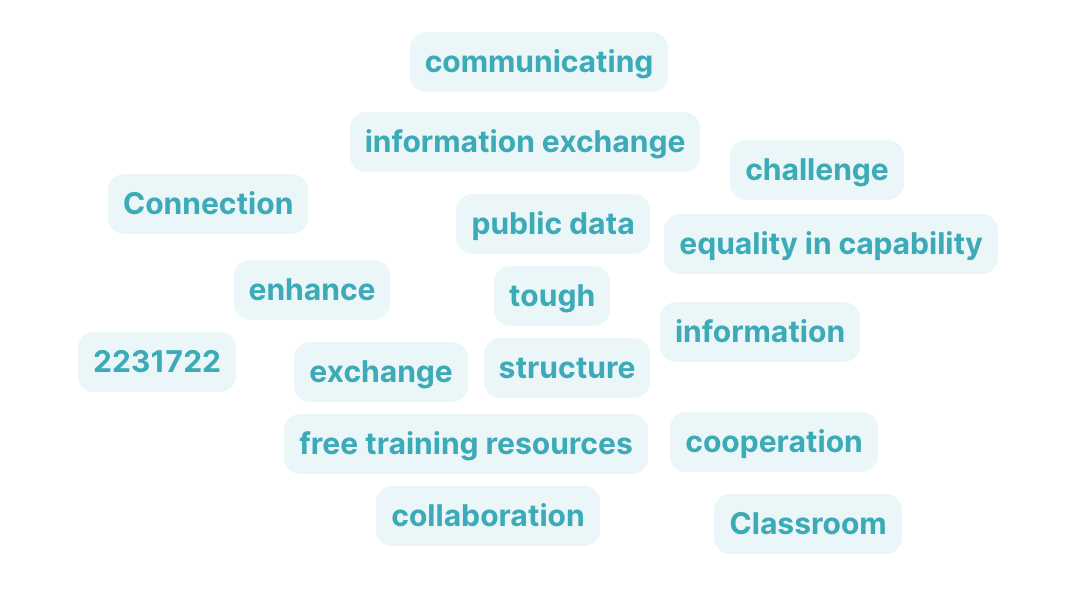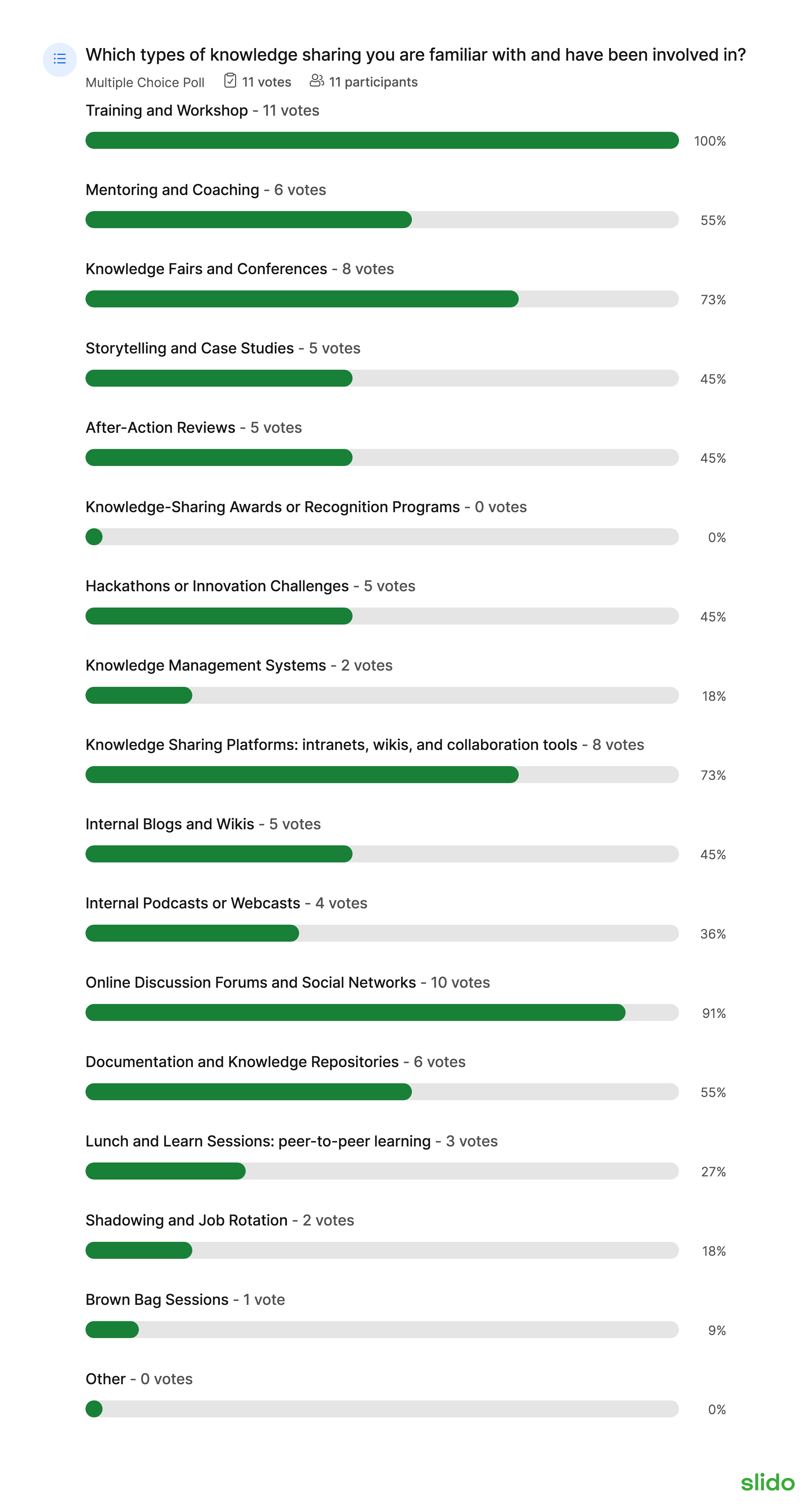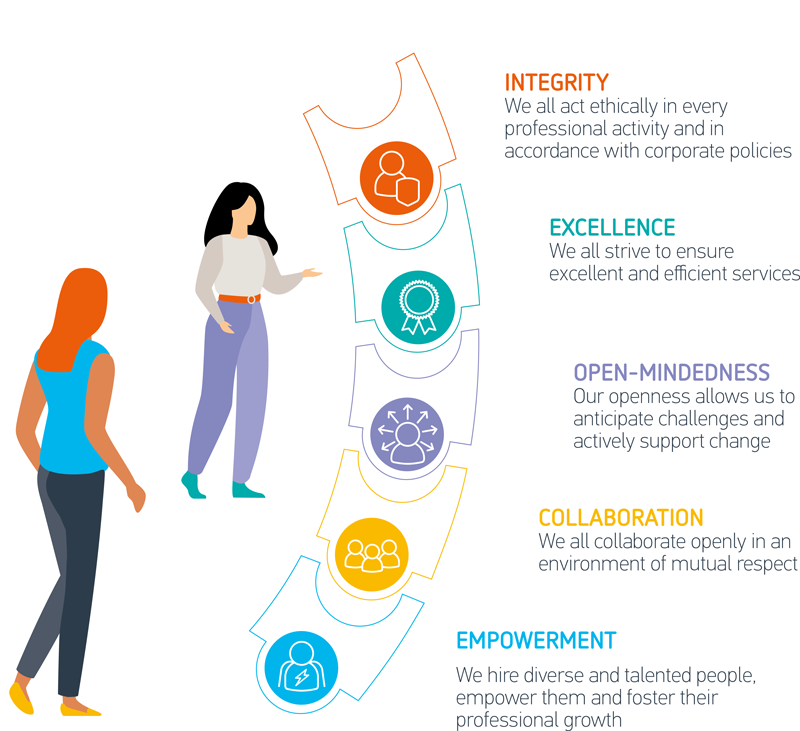Dear All
Thank you for your attendance at the Session of Fostering Collaborative Learning: Exploring Various Knowledge-Sharing Activities in Modern Organizations yesterday. We gained some important points and insights from you, that we will use to improve the knowledge-sharing activities in BMKG. We had 14 participants in the room with 93% engagement. Thank you for that.
We began the session with questions about the knowledge-sharing by definition. Thanks to the Slido, the answers were nicely captured
We also noted some important information that knowledge-sharing is a collaborative work, sharing information with the public or anyone interested, takes time (both to find the right method but also to get knowledge to flow towards), has several activities where different knowledge, and ideas are exchanged, can be done in many different ways and different formats.
We captured some familiar and unfamiliar types of knowledge-sharing
The challenges we captured were among others different points of view (somehow even if we do in the same sector, the point of view formed differently based on experience); Lack of trust in each other to share the knowledge; the person receiving the information does not understand the message/ knowledge delivered and to find the way of offering knowledge that people will remind it (the forgetting curve case) and to ensure that knowledge will be used in work. Language and communication also were captured as barriers. Finding where is the relevant knowledge is also a challenge.
However, solutions are also proposed to solve the problems. We agreed that is necessary to show colleagues examples of different ways of knowledge sharing and keep the colleagues in the organization updated, whenever possible. We believe that doing activities in which they learn by doing will be helpful; for example, conducting e-learnings in which learners are confronted with a real problem they need to solve. We found that networking, and getting the key person is important but just starting and evaluating regularly is more essential to making knowledge-sharing happen. As we captured the necessity of good communication among the parties involved, using plain language, especially when communicating with people in different disciplines is needed to ensure this knowledge-sharing is conducted smoothly and sustainably.
Great discussion with some handy-result for us to bring back to our organization to implement. We still have questions on how the legal aspect of copyright takes place in this case. How to build trust among people involved in this activity? How to make the activity sustainable?
Therefore, we believe that this discussion should continue. So, we invite you to share more details on your experiences, best practices,s and lessons learned in knowledge-sharing.
Thank you and enjoy your CALMet days,
Roro and Nina



 EUMETSAT, as well as at any other organisation with various divisions all busy with their own tasks, it is easy to fall into silos that you mentioned.
EUMETSAT, as well as at any other organisation with various divisions all busy with their own tasks, it is easy to fall into silos that you mentioned.